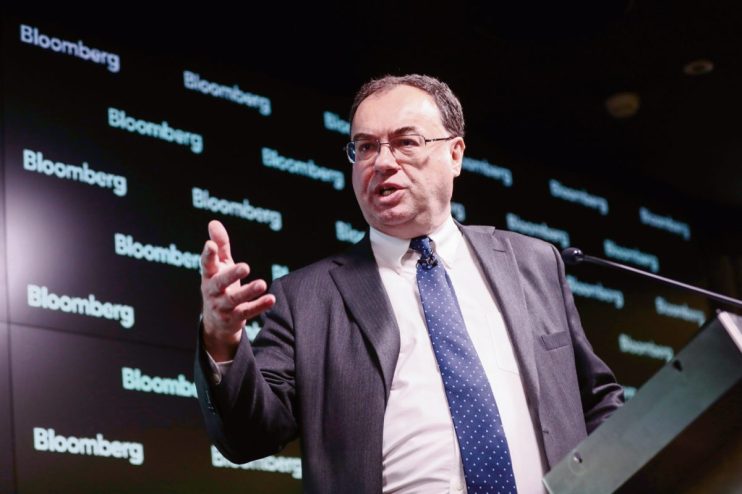Andrew Bailey dismisses banking volatility as ‘testing out’ but stresses BoE remains ‘vigilant’

Andrew Bailey today dismissed recent volatility in the banking sector as “testing out” firms although he stressed that officials in the UK remained “very vigilant” for further signs of friction.
Responding to a grilling by MPs on the treasury committee, the governor of the Bank of England said “there’s been quite sharp moves in markets recently…I would not say those in my estimation are based on identified weaknesses…there’s quite a lot of testing out going on at the moment”.
The governor was referring to significant share price movements at some of Europe’s largest banks, such as Deutsche Bank, which fell nearly 10 per cent last Friday.
The global banking system has been jittery since the collapse of Silicon Valley Bank earlier this month, although Bailey said the UK financial sector remained secure.
“I don’t think…that any of these features will cause stress in the UK banking system…I don’t think we’re at all in the place we were in 2007-08”.
Bailey argued that the collapse of Credit Suisse was an issue of “viability” of its business model rather than any deeper problems in the financial sector.
Nor was it a complete surprise. Bailey said the Bank had been involved in contingency planning with Swiss and US regulators since last October.
“We are in a position of very heightened – frankly – tension and alertness.”
The governor and Sam Woods, chief of the Prudential Regulation Authority – an arm of the Bank that monitors the plumbing of the UK financial network – also shed some light on the sale of SVB UK, telling MPs that officials worked all through Saturday and Sunday night, only guaranteeing a deal at 4am on Monday morning.
Bailey told MPs that while there had been other interested parties, by early evening on Sunday “we only really had one left, and that was HSBC.”
One aspect of HSBC’s purchase which has attracted attention is the exemption it secured to ring-fencing rules. The ring-fencing regime is designed to separate riskier parts of a bank’s operations from its retail division.
Woods said the deal involved creating a “small hole in the ring-fence,” something which he stressed should not be replicated in other examples unless there was “extreme urgency”.
But Andrea Leadsom, an MP on the treasury committee, argued that “allowing a tiny hole to be punched in the ring-fence…[undermines] the whole basis of the ring-fence”.
“Life is not perfect, you have to make trade-offs sometimes,” Woods replied.
The panellists also said they were not concerned about the government’s proposed changes to the ring-fencing regime going ahead amidst turbulence in the financial sector.
Woods said “I am quite content with it to go ahead, I think it’s fine. I just think we should keep a careful eye on the bits that potentially weaken the regime.”
Woods highlighted in particular banks with small retail divisions in the UK but large international investment banking operations.